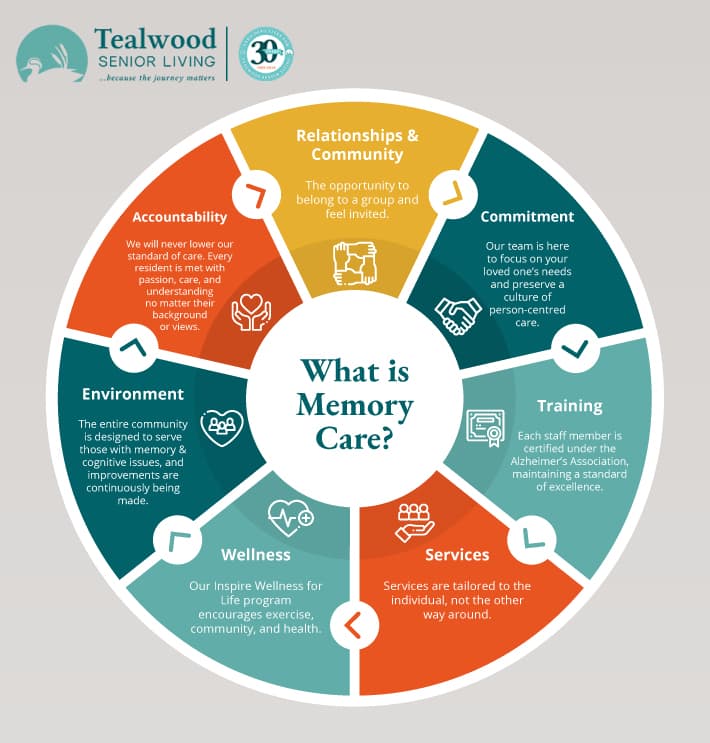Comprehensive Family Members Support Offered with Alzheimers Care Charlotte
Comprehensive Family Members Support Offered with Alzheimers Care Charlotte
Blog Article
Specialist Tips for Providing Quality Alzheimer's Care in your home
Looking after a specific with Alzheimer's illness in the house presents unique challenges that call for both understanding and calculated preparation. Establishing an organized daily routine, enhancing interaction skills, and developing a risk-free setting are important parts of effective caregiving. Furthermore, caregivers should not overlook the significance of looking for exterior assistance and sources to maintain their own health. As we explore these professional pointers even more, it comes to be clear that a thoughtful strategy can considerably affect the quality of life for both the caretaker and the private obtaining care. What details methods can be implemented to ensure a supportive environment?
Understand Alzheimer's Condition
Alzheimer's condition, a modern neurodegenerative problem, greatly influences cognitive function and day-to-day living tasks. It mostly impacts memory, thinking, and actions, resulting in a steady decrease in the abilities necessary for independent living. Early signs and symptoms typically include lapse of memory, difficulty in analytic, and challenges in finishing acquainted jobs. As the disease advances, individuals might experience disorientation to time and place, impaired judgment, and changes in state of mind and character.
The etiology of Alzheimer's is intricate, involving the build-up of amyloid plaques and tau tangles in the mind, which interfere with neuronal communication and result in cell fatality. Danger aspects consist of age, genes, and way of living selections, with most of situations happening in individuals over 65. Understanding of these facets is vital for caretakers, as recognizing the problem can facilitate much better support and care strategies.
In addition, Alzheimer's disease not only affects the specific but also has significant emotional and logistical effects for family members. Recognizing the phases of the condition permits caregivers to expect obstacles and adapt their approach, making sure that the demands of those impacted are consulted with compassion and understanding. This foundational knowledge is vital for promoting quality care in your home.
Establish a Regular
Developing an organized everyday routine can dramatically improve the quality of life for individuals living with Alzheimer's condition. Establishing constant patterns assists to reduce complication and anxiety, providing a feeling of safety and familiarity. A day-to-day timetable should consist of regular times for dishes, activities, and rest, which can assist individuals expect what to anticipate throughout the day.
Integrating straightforward, familiar tasks right into the regimen can promote a feeling of accomplishment and freedom. Activities like gardening, food preparation, or even basic household tasks can be valuable. It is necessary to tailor these activities to the individual's passions and abilities, ensuring interaction without aggravation.
Additionally, adaptability within the regimen is vital. While consistency is very important, permitting changes based upon the individual's state of mind or energy levels can help preserve a positive atmosphere. Motivate involvement in social communications, whether through family visits or area activities, as these can supply excitement and connection.
Enhance Communication Skills
Reliable interaction is necessary for keeping significant links with people coping with Alzheimer's condition. As cognitive capabilities decrease, typical discussion might end up being difficult. Caretakers must adjust their interaction methods to promote understanding and connection. Alzheimers Care Charlotte.

Program real passion by keeping eye call and nodding to acknowledge their feelings or thoughts. Rather, validate their feelings and reroute the discussion delicately go to my blog if needed.
Using visual aids, such as images or created reminders, can also enhance comprehension. Urge involvement in read this post here tasks that boost discussion, such as thinking back concerning previous occasions or checking out photo cds.
Develop a Safe Atmosphere
A supportive environment plays a significant role in the health of people with Alzheimer's disease. Creating a secure home setting is necessary to minimize threats and boost the top quality of life for both the private and their caregivers. Begin by evaluating the home for potential threats. Get rid of tripping threats such as loose carpets, electric cables, and mess. Make sure that pathways are well-lit and clear to avoid falls.
Set up safety locks on windows and doors to stop roaming, which is an usual issue in Alzheimer's patients. In addition, think about using non-slip mats in washrooms and mount grab bars for added assistance. Classifying rooms and vital items can aid people browse their surroundings a lot more easily.
Emergency get in touches with must be plainly uploaded near phones, and a medical alert system can supply tranquility of mind. On the whole, customizing the home setting to the unique needs of the individual with Alzheimer's not just advertises safety however likewise motivates freedom and convenience.
Look For Assistance and Resources
Accessing assistance and next page sources is essential for caretakers and individuals facing the challenges of Alzheimer's disease. Caregiving can be frustrating, both literally and emotionally, and it is essential for caretakers to look for support to maintain their wellness and offer high quality care.

Furthermore, discovering break care alternatives can manage caregivers much-needed breaks, enabling them to reduce and recharge burnout. This might include grown-up day programs or at home care solutions. Financial support programs may also be offered to help balance out the prices of treatment.

Conclusion
In summary, giving high quality Alzheimer's treatment in the house requires a multifaceted method. Comprehending the intricacies of the disease, establishing a structured regimen, enhancing communication skills, producing a risk-free environment, and seeking support from offered resources collectively add to boosted caregiving experiences. Implementing these techniques not only cultivates a sense of independence and achievement for individuals with Alzheimer's but likewise relieves caretaker stress, ultimately improving the lifestyle for both caretakers and those they support.
Caring for a private with Alzheimer's illness at home presents one-of-a-kind challenges that require both understanding and tactical planning.Furthermore, Alzheimer's condition not only affects the specific yet likewise has substantial emotional and logistical effects for family members.Developing a structured day-to-day routine can substantially improve the quality of life for people living with Alzheimer's disease.Effective interaction is necessary for keeping purposeful links with individuals living with Alzheimer's disease. Alzheimers Care Charlotte. Implementing these strategies not only fosters a feeling of self-reliance and achievement for individuals with Alzheimer's but likewise eases caretaker anxiety, eventually boosting the quality of life for both caregivers and those they support
Report this page